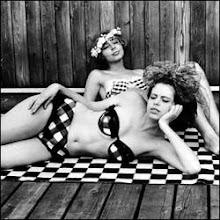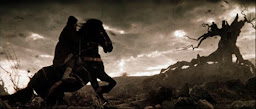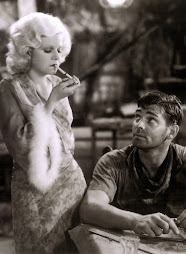.gif)
Light and dark. Soul and flesh. Spirit and the world. "Elton John" is an album of dualities. It's part Elton John the soulful bluesman, part Reginald Dwight the English lad. Later, John and lyricist Bernie Taupin will be able to meld these two sides of the coin into a brassy bronze whole, but on this second album, they're still flipping the coin back and forth.
It makes "Elton John" a strange listening experience. Later albums like "Tumbleweed Connection," "Madman Across the Water," and especially "Goodbye Yellow Brick Road" and "Captain Fantastic and the Brown Dirt Cowboy," are practically concept albums (and "Captain Fantastic" actually is), a sign to today's generation that Elton John was as much a rock artist as other 70s greats like Zeppelin and Bowie. But Elton's reputation among the young and hep has steadily declined since the early 80s, partly owing to the break up with Bernie Taupin (meaning the music's gotten less Saturday Night's Alright for Fighting and more Saturday night's the night for drinking wine and listening to soft rock radio) and partly owing to Elton's continued transformation into the world's slightly daffy and rotund but still fun at parties middle aged gay uncle. A listen to his early and mid 70s output, however, quietly dispells the myth that Elton John's music is fit only for the dentist's office or Princess Di funerals.
Even a messy masterpiece like the self-titled second album shows that Elton and Bernie were caught up in a swirl of rock and blues and sad English strings, teetering between being the soundtrack for a road trip across a sun-soaked and Southern-fried U.S. heartland or the soundtrack for a European art film. Both are compelling musical identities in and of themselves, but when combined together they would become the signature sound that would define the originality and brilliance of the 70s Elton John era.
What makes "Elton John" such a compelling record is that we, the listeners, get to hear the struggle within Elton as he seeks to find his musical identity. The duality of the album tugs at the duality in our own souls, between the soulful uplift of the blues-influenced tunes and the plaintive greyness of the English harpsichord ballads. We hold these identities within ourselves too: the sunshine promise of a new day, the yearning for the sun that comes from Elton's brand of sunny blues, and then it's opposite, the rain-swept overcast that clouds our hearts as we face the heartaches and regrets of life. Only in "Your Song" does Elton harmonize the two natures. "Your Song" is a slight smile and a small sorrow; it's yellow-blue sunlight peaking through the grey clouds; it's an English love song by way of a New York rooftop. A 1970s New York rooftop, naturally.












_01.jpg)







No comments:
Post a Comment